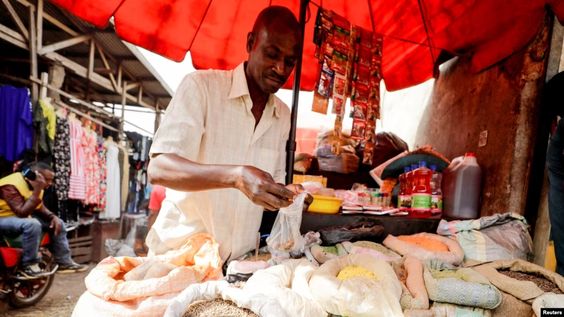Africa
Investments Are Needed in Central Africa to Neutralize the Effects of the Russian War

As Africa’s poorest area battles to recover from natural catastrophes, violent conflicts, and the aftereffects of Russia’s invasion of Ukraine, ministers of the economy in Central Africa are urging investments in agriculture and energy. The six members of the regional group CEMAC’s heads of state gather on Friday to examine the difficulties.
According to the 55 million citizens of the Central African Economic and Monetary Community (CEMAC), the majority of them live in utter poverty, which has only gotten worse in recent years due to global problems.
On Thursday in Yaoundé, ministers from the six-nation bloc—Cameroon, the Central African Republic, Chad, Equatorial Guinea, Gabon, and the Republic of Congo—met.
Russia’s invasion of Ukraine is the most recent in a string of international catastrophes to affect the area, according to CEMAC President Daniel Ona Ondo, a Gabonese.
According to him, the ministers’ conference strongly advocated making significant investments in agriculture and energy in order to reduce our excessive reliance on imported food and gasoline from Russia and Ukraine.
Before to Russia’s invasion of its neighbour, the Central African republics imported 60% of their gasoline and 80% of their wheat from Russia and Ukraine.
Cameroon, the Central African Republic, and Gabon all experienced gasoline shortages in July of last year, which they attributed to the conflict in Russia’s interruptions.
According to CEMAC, the war increased the costs member nations paid for gasoline and fertiliser and put further strain on the farmers in the area, who were already having difficulty due to the violence and climatic shocks.
According to Ondo, the region’s military conflicts and political upheaval have made it harder for economies to recover from the COVID-19 epidemic.
Alamine Ousman Nou, Cameroon’s minister of the economy, expressed optimism despite the setbacks.
Mey also serves as the head of CEMAC’s Council of Ministers for Integration and the Economy.
Notwithstanding the numerous environmental and security shocks, the migration of refugees, and the displacement of people, he claimed that Cameroon, Chad, Equatorial Guinea, Gabon, the Central African Republic, and the Republic of Congo had demonstrated resilience. Mey said that in 2022, the economic growth rate will remain at 3%. He declared that despite the difficult global economy and serious difficulties, CEMAC will always strive for the interests of its citizens.
When the heads of state gather in Yaoundé on March 17, the ministers declared that they will provide a strategy for enhancing living circumstances through agriculture and energy.
At the University of Buea in Cameroon, economist Ernest Moloua teaches economics.
The free movement of people and products as part of the African Continental Free Trade Area, he added, should be a priority for the region’s leaders.
Speaking through messaging app from Buea, he claims that if the heads of state take the trade agreement seriously, CEMAC would have a lot of prospects.
“The development of public infrastructure, communication and communications facilities, highways, and train lines is the most crucial factor for CEMAC. When this takes materialise, the region will be in a better position to profit from the continental free trade area, according to Moloua.
The heads of state conference on Friday, according to CEMAC, will be centred on structural changes to address the economic effects of the COVID epidemic and Russia’s conflict in Ukraine.
